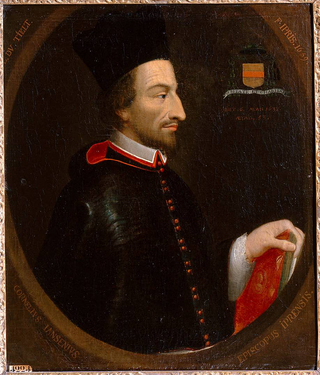
Jansenism was an early modern theological movement within Catholicism, primarily active in the Kingdom of France, that arose in an attempt to reconcile the theological concepts of free will and divine grace. Jansenists claimed to profess the true doctrine of grace as put forth by Augustine of Hippo. In 1653, Pope Innocent X promulgated the bull Cum occasione, which condemned five errors attributed to Jansenism, including the idea that Christ did not die or shed his blood for all men.

The Pontifical Gregorian University, is a higher education ecclesiastical school located in Rome, Italy.
Baianism is a term applied to the school of thought of Catholic theologian Michael Baius (1513-1589). Its foremost apologists, Baius among them, largely claimed this school and its teachings to be a return to a sort of Augustinianism, against the reliance on Scholasticism and Scholastic writings which held sway over most Catholic theologians at the time. It is the immediate historical predecessor of Jansenism, and, as with Jansenism, has been deemed non-orthodox by the Catholic Church.

Anton Maria Anderledy was a Swiss Jesuit, elected the twenty-third Superior General of the Society of Jesus.
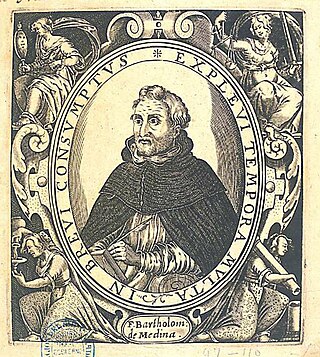
Bartolomé de Medina, O.P. (1527-1580) was a Spanish theologian born in Medina de Rioseco, Spain. A member of the Dominican Order and a student of Francisco de Vitoria, he was professor of theology at the University of Salamanca and a member of the School of Salamanca. He is best known as the originator of the doctrine of probabilism in moral theology, which holds that one may follow a course of action that has some probability, even if the opposite is more probable.
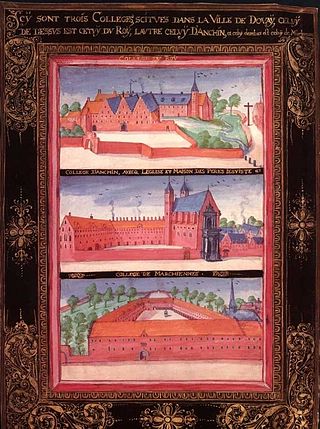
The University of Douai was a former university in Douai, France. With a medieval heritage of scholarly activities in Douai, the university was established in 1559 and lectures started in 1562. It closed from 1795 to 1808. In 1887, it was transferred as University of Lille 27 km away from Douai.
Jacob Keller was a German Jesuit theologian, author, and religious instructor.
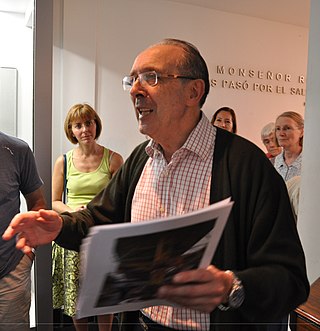
Jon Sobrino is a Jesuit Catholic priest and theologian, known mostly for his contributions to Latin American liberation theology. He received worldwide attention in 2007 when the Vatican's Congregation for the Doctrine of the Faith issued a notification for what they termed doctrines that are "erroneous or dangerous and may cause harm to the faithful."
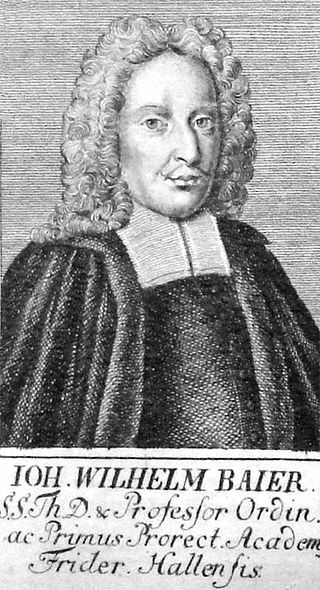
Johann Wilhelm Baier was a German theologian in the Lutheran scholastic tradition. He was born at Nuremberg, and died at Weimar.

John de Lugo (1583–1660), a Spanish Jesuit and Cardinal, was an eminent theologian of the Baroque.
Anthony Terill (born 1623, Canford, Dorset, England – died 11 October 1676, Liège was an English Roman Catholic Jesuit theologian.

Thomas Stapleton was an English Catholic priest and controversialist.
Domenico Viva was an Italian Jesuit theologian.
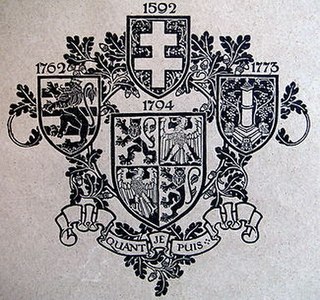
The Colleges of St Omer, Bruges and Liège were successive expatriate institutions for Roman Catholic higher education run by the Jesuits for English students.

Théophile Raynaud was a French Jesuit theologian and writer.
Tobias Lohner was an Austrian Jesuit theologian.
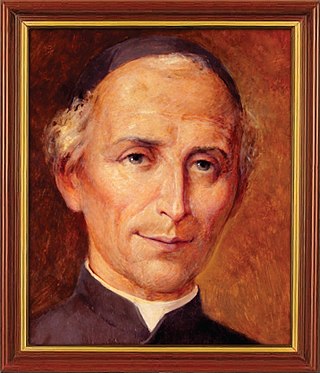
Pio Bruno Pancrazio Lanteri, or simply Bruno Lanteri, was a Catholic priest and founder of the religious congregation of the Oblates of the Virgin Mary in the Kingdom of Piedmont-Sardinia in northwestern Italy in the early 19th century. His spiritual life and work centered on the Spiritual Exercises of St. Ignatius of Loyola. He was also renowned for challenging Jansenism by distributing books and other publications that promoted the moral theology of St. Alphonsus Liguori, as well as establishing societies to continue this work.
Matthew Kellison was an English Roman Catholic theologian and controversialist, and a reforming president of the English College, Douai.

The Old University of Leuven was established in 1425 with Faculties of Arts, Medicine, Law; however, the university did not have a Faculty of Theology initially. In 1426 a Faculty of Canon Law was added, and at that time both Law Faculties functioned together in one Collegium utriusque iuris.













